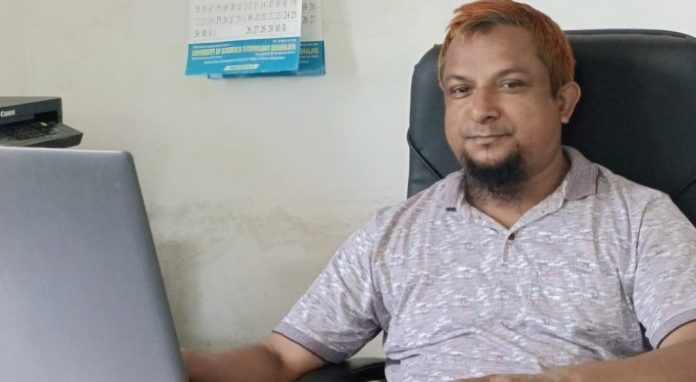In a remarkable achievement, Dr. Faizuddin Ahmed, an Assistant Professor in the Department of Physics at the University of Science and Technology Meghalaya (USTM), has once again been recognized among the world’s top 2% scientists by Stanford University, USA. This marks the fifth consecutive year that Dr. Ahmed has received this prestigious honor, showcasing his unwavering contributions to scientific research, reported The Hindustan Times.
Despite ongoing political scrutiny of USTM, a Muslim-owned university, by Assam Chief Minister Himanta Biswa Sarma, the institution has continued to excel academically. Under the leadership of founder Mahbubul Hoque, USTM has nurtured a diverse student body, with 80% of its students being Hindu. Dr. Ahmed’s recognition further affirms the university’s commitment to academic excellence and inclusivity.
The list, published on September 16, 2024, highlights global scientific excellence, with Dr. Ahmed being honored for his groundbreaking research in Theoretical Physics, particularly in the areas of General Relativity and quantum mechanics. Over the course of his career, he has published 165 research papers in top-tier Scopus-indexed journals, including the European Physical Journal C, Journal of Cosmology and Astroparticle Physics, and Annals of Physics.
Expressing his gratitude, Dr. Ahmed stated, “Being recognized by Stanford University for five consecutive years is a humbling experience. This honor is a testament to the value of persistence, research, and the pursuit of knowledge. I owe a great deal of gratitude to USTM and my colleagues for their unwavering support.”
Dr. Ahmed’s academic journey began at Bholanath College, Dhubri, where he completed his undergraduate degree in 2006. He went on to pursue his master’s and PhD at Gauhati University, receiving his doctorate in 2016.
His consistent recognition on the global stage not only highlights his individual brilliance but also positions USTM as a hub for scientific research and innovation, standing tall against the political challenges it faces.




